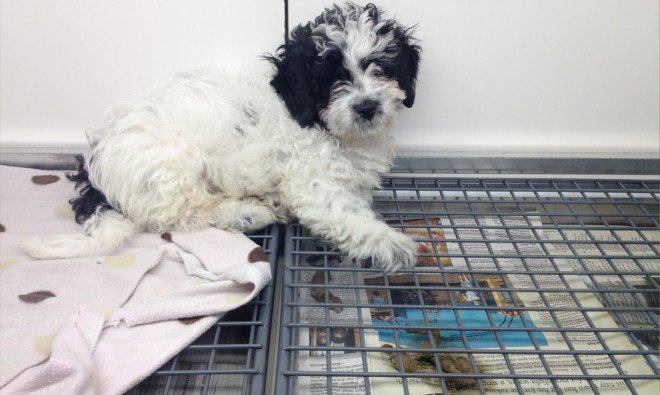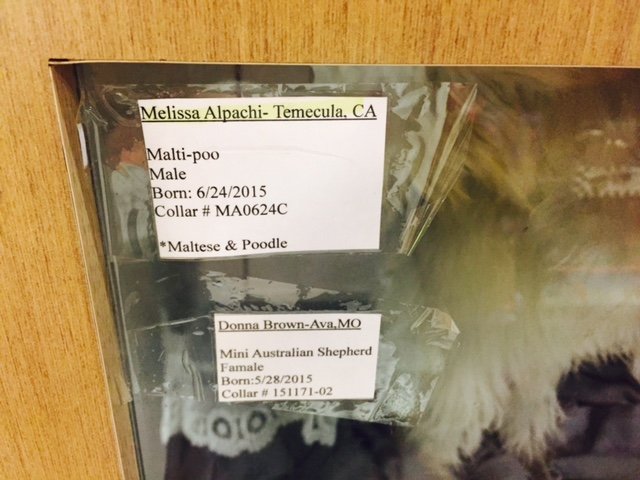
“What’s wrong with buying puppies at pet shops?” It’s a common and understandable question. When you walk into a pet shop, such as the recently closed Russo’s Pets in Newport Beach, California, the sight of lonely puppies in dirty cages stabs your heart. All you want to do is free them. We know, because we have the same gut reaction.
Before Russo’s shut down, our undercover investigators went there to determine where the store got its animals. What we saw made us wish we could snatch the dogs and run for it. There were forty puppies and one kitten, sleeping on wire floors in feces-filled display boxes. The place reeked of urine and waste.

As their only chew-toys, puppies were given rolled-up newspapers. One puppy’s newspaper was crumbling to bits and covered in blood. Ingesting newsprint like that is NOT GOOD for dogs.
But there was a reason why we didn’t buy up every dog we saw. Even if the store had been sparkling clean, we wouldn’t have done it. Because the main reason to avoid purchasing puppies at pet shops isn’t because of the conditions in the store, it’s because of where the puppies come from. Puppy mills.

Like all pet shops, Russo’s denied using puppy mills. But when we tried to determine the origin of a particular puppy, their story collapsed.
In order for a puppy to get from a puppy mill to a pet shop, he usually follows a long and complicated path. Puppy mills can sell him to a broker (who will sometimes resell him to other brokers), who will ship him cross-country. By the time a puppy arrives at a pet shop, he may have changed hands half a dozen times, making it hard to pin down his original breeder.
Which is exactly what pet shops want.
Because if consumers knew that a puppy’s parents were suffering in a puppy mill, they wouldn’t buy the dog. Either through neglect (or through outright consumer fraud), pet shops often keep this information hidden. One of the Russo’s breeders we investigated was not only breeding dogs, but brokering dogs without a license, making it even harder to track her animals.
Watch what happened 80 seconds into this video when our investigators tried to pin down the origin of an Australian Shepherd at Russo’s Pets:
Thankfully, the Russo’s in Newport Beach is now closed. But it could’ve been shuttered five years ago if the city had passed a law banning the retail sale of animals — like nearby Irvine did in 2011. CAPS testified at the Irvine City Council hearing that brought about the ban, which forced another Russo’s Pets location in Irvine to close.
The only reason the Newport Beach Russo’s finally went out of business was because its landlord chose not to renew its lease; the mall it was in no longer wanted puppy mill dogs on its property. But the owners of Russo’s are free to reopen elsewhere in Newport Beach, or in other cities where the retail sale of animals is still legal. There’s already a Russo’s Pet Center in nearby Laguna Niguel that sells rabbits. Are they going to start selling puppies and kittens there, too?

The only way to stop the cruel puppy mill/pet shop cycle is to get more cities to pass laws banning the retail sale of animals. This will deny puppy mill breeders a market for their animals and put them out of business. CAPS has been working hard to make this happen, but we need your help to keep the progress going.
Please consider making a donation towards our legislative initiatives, or let us know if there’s a pet shop near you that needs investigating. And if you’re looking to add a companion animal to your family, go to petfinder.com for a list of shelters and rescues in your area. Adopt, don’t shop.
With your help, we can end the needless suffering of companion animals.


